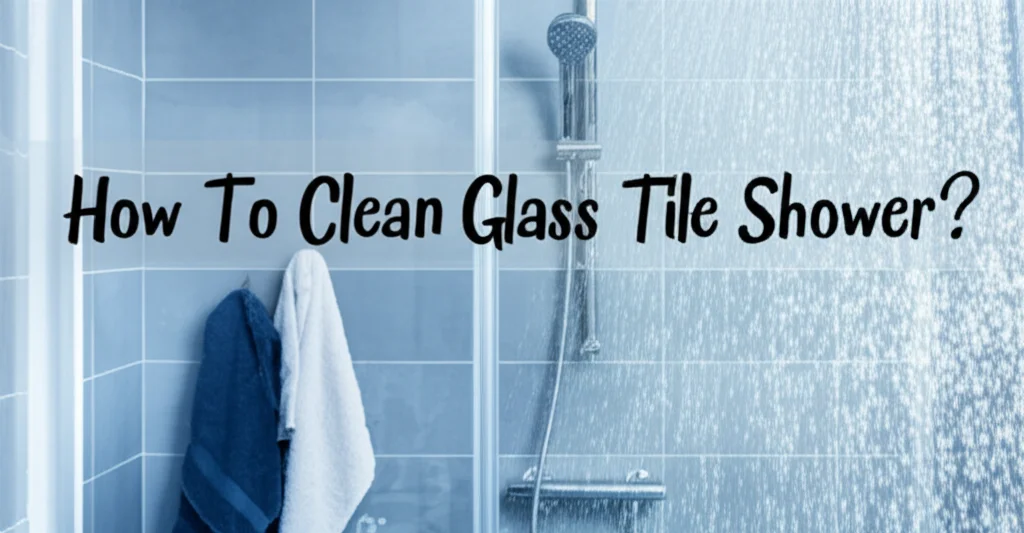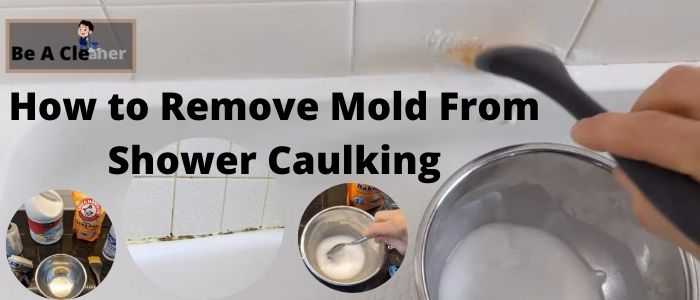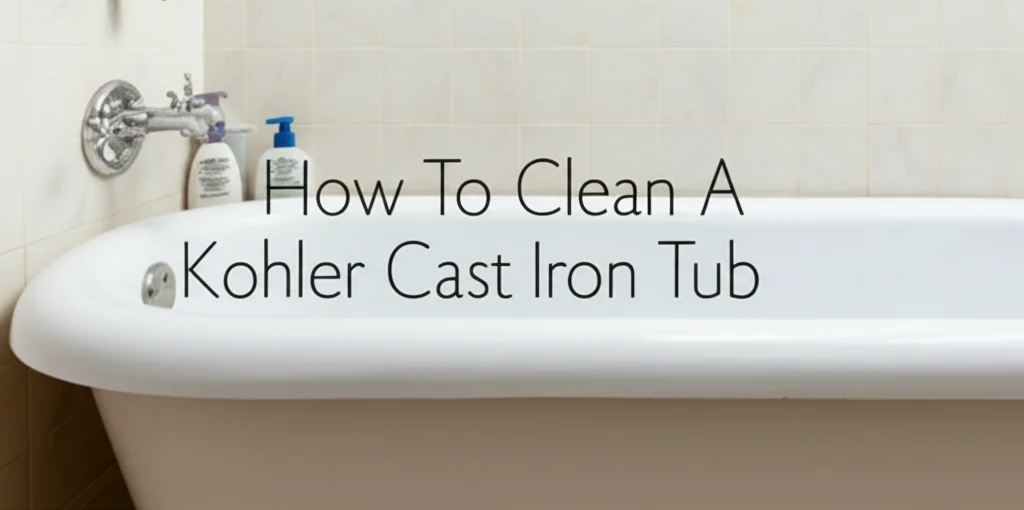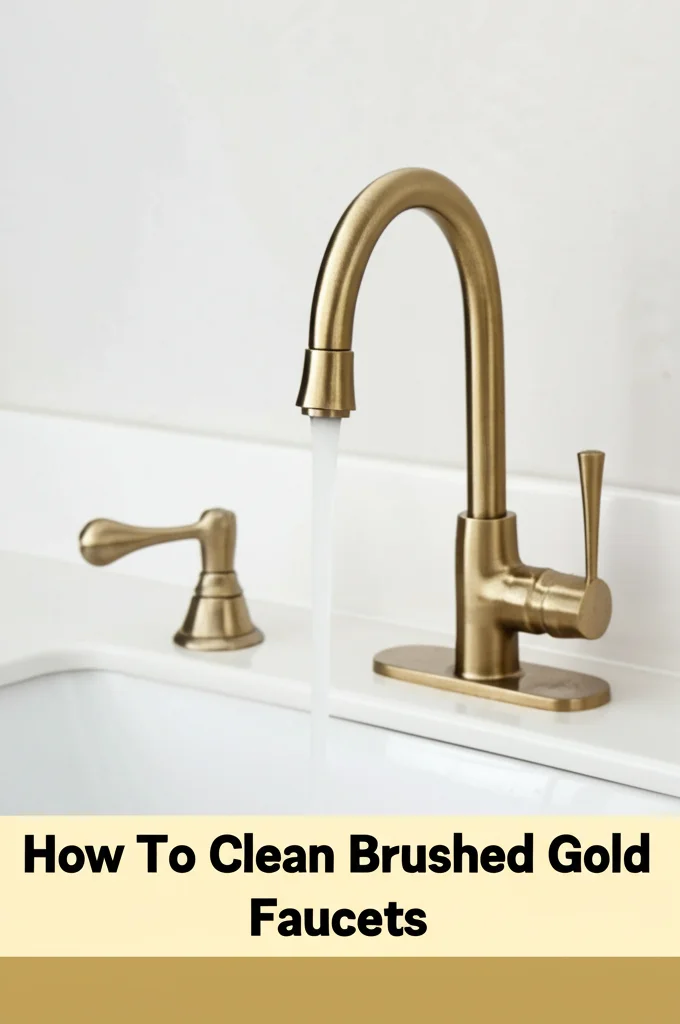· Bathroom Cleaning · 8 min read
How To Clean Glass Tile Shower?

Sparkling Clean: How To Clean Glass Tile Shower?
Ever step into your shower hoping for a relaxing experience, only to be greeted by a film of soap scum and water spots on your beautiful glass tile? It’s a common problem! Cleaning a glass tile shower doesn’t have to be a daunting task. This article will guide you through the most effective methods to keep your shower looking its best. We’ll cover everything from daily maintenance to tackling stubborn buildup, ensuring your glass tile shower remains a sparkling oasis. We’ll explore both DIY solutions and commercial cleaners, helping you choose the best approach for your needs.
Takeaway:
- Daily squeegeeing prevents buildup.
- Vinegar and baking soda are effective natural cleaners.
- Commercial shower cleaners offer convenience and power.
- Regular cleaning saves time and effort in the long run.
Quick Answer:
To clean a glass tile shower, spray with a vinegar and water solution (or a commercial shower cleaner), let it sit for 15-30 minutes, scrub gently with a non-abrasive sponge or brush, and rinse thoroughly. Squeegee after each use to prevent soap scum buildup.
1. Understanding Your Glass Tile Shower & The Enemy: Soap Scum
Before diving into cleaning methods, it’s important to understand what you’re up against. Soap scum isn’t actually soap; it’s a combination of soap residue, hard water minerals, and body oils. This creates a sticky film that clings to your glass tile, making it look dull and dirty. Different types of glass tile may also require slightly different care. Some have a textured surface, while others are smooth.
- Textured Glass Tile: These tiles have more crevices where grime can accumulate, requiring a bit more scrubbing.
- Smooth Glass Tile: Easier to clean, but still susceptible to water spots and soap scum.
- Sealed vs. Unsealed Grout: The grout surrounding your glass tile also needs attention. Sealed grout is more resistant to stains, while unsealed grout requires more frequent cleaning and sealing. You can find more information on grout cleaning at https://www.beacleaner.com/how-to-clean-floor-grout-without-scrubbing/.
Knowing your tile type will help you choose the right cleaning products and techniques.
2. Daily Maintenance: The Power of the Squeegee
The single most effective thing you can do to keep your glass tile shower clean is to squeegee it after every use. Seriously! This simple habit removes excess water and soap residue before it has a chance to dry and harden into stubborn soap scum. It takes less than a minute and will dramatically reduce the amount of deep cleaning you need to do.
- Choose a Good Squeegee: Look for a squeegee with a flexible blade that conforms to the shape of your tile.
- Overlap Strokes: Overlap each stroke slightly to ensure you cover the entire surface.
- Wipe the Blade: Wipe the squeegee blade after each use to prevent spreading grime.
- Combine with Ventilation: Run the bathroom fan during and after showering to reduce moisture and prevent mildew growth.
Think of squeegeeing as a preventative measure – a small effort that yields big results.
3. DIY Cleaning Solutions: Vinegar & Baking Soda to the Rescue
You don’t need harsh chemicals to clean your glass tile shower. Many effective cleaning solutions can be made with ingredients you likely already have at home. Vinegar and baking soda are a dynamic duo when it comes to tackling soap scum and grime.
- Vinegar Solution: Mix equal parts white vinegar and water in a spray bottle. Spray the solution onto the glass tile and let it sit for 15-30 minutes. The acidity of the vinegar helps dissolve soap scum.
- Baking Soda Paste: For stubborn areas, make a paste of baking soda and water. Apply the paste to the affected areas and let it sit for a few minutes before scrubbing gently.
- Vinegar & Baking Soda Combination: Spray vinegar onto the tile, then sprinkle baking soda over it. The fizzing action helps loosen grime. Be cautious when combining these, as it creates carbon dioxide.
- Lemon Juice Alternative: Lemon juice can also be used as a natural cleaner, offering a fresh scent.
Remember to rinse thoroughly with water after using any DIY cleaning solution. If you’re dealing with mold, you might also want to check out https://www.beacleaner.com/how-to-remove-mold-from-painted-walls/ for additional tips.
4. Commercial Shower Cleaners: Convenience & Power
While DIY solutions are effective, commercial shower cleaners offer convenience and often more powerful cleaning action. When choosing a commercial cleaner, look for one specifically designed for glass tile and soap scum removal.
- Spray Cleaners: These are easy to use and require minimal effort. Spray the cleaner onto the tile, let it sit for the recommended time, and rinse.
- Foaming Cleaners: Foaming cleaners cling to vertical surfaces, providing longer contact time and better cleaning power.
- Gel Cleaners: Gel cleaners are ideal for tackling stubborn buildup. They cling to surfaces and penetrate grime effectively.
- Read the Label: Always read and follow the manufacturer’s instructions carefully. Ensure the cleaner is safe for your specific type of glass tile.
Consider using a cleaner with a mildew inhibitor to prevent future growth.
5. Scrubbing Techniques: Gentle is Key
Once you’ve applied your cleaning solution, it’s time to scrub. However, avoid using abrasive cleaners or scrubbing pads, as these can scratch the glass tile.
- Non-Abrasive Sponge: A soft sponge is ideal for general cleaning.
- Microfiber Cloth: Microfiber cloths are excellent for polishing and removing water spots.
- Soft-Bristled Brush: A soft-bristled brush can be used to reach tight corners and textured surfaces.
- Circular Motions: Scrub in circular motions to loosen grime effectively.
- Gentle Pressure: Avoid applying excessive pressure, as this can damage the tile.
For particularly stubborn areas, let the cleaning solution sit for a longer period before scrubbing. You might also find helpful tips on cleaning hard-to-reach areas at https://www.beacleaner.com/how-to-clean-outside-windows-upstairs/.
6. Dealing with Hard Water Stains
Hard water stains are a common problem in showers, leaving behind unsightly white spots. These stains are caused by mineral deposits from hard water.
- Vinegar Soak: Soak a cloth in white vinegar and apply it to the affected areas. Let it sit for several hours or overnight.
- Lemon Juice: Lemon juice can also be used to dissolve hard water stains.
- Commercial Hard Water Stain Remover: Several commercial products are specifically designed to remove hard water stains.
- Preventative Measures: Consider installing a water softener to reduce the mineral content of your water.
After removing the stains, rinse thoroughly and dry the tile to prevent them from returning.
7. Protecting Your Glass Tile: Sealants & Preventative Care
Once your shower is sparkling clean, you’ll want to keep it that way. Consider applying a sealant to your glass tile to help repel water and soap scum.
- Glass Tile Sealant: These sealants create a protective barrier that makes it easier to clean your shower.
- Grout Sealer: Sealing your grout prevents stains and mildew growth.
- Regular Cleaning: Continue to squeegee after each use and perform regular deep cleanings to maintain a sparkling shower.
- Ventilation: Ensure proper ventilation to reduce moisture and prevent mildew.
Taking preventative measures will save you time and effort in the long run. If you’re noticing issues with your grout, you might want to explore https://www.beacleaner.com/what-is-the-best-homemade-tile-grout-cleaner/ for some helpful solutions.
Frequently Asked Questions (FAQ)
Q: How often should I deep clean my glass tile shower? A: Ideally, you should deep clean your glass tile shower every 1-2 months, depending on usage and water hardness. Regular daily maintenance with a squeegee will significantly reduce the frequency of deep cleanings.
Q: Can I use bleach to clean my glass tile shower? A: While bleach can be effective at killing mildew, it can also damage some types of glass tile and grout. It’s best to avoid bleach and opt for gentler cleaning solutions like vinegar or commercial shower cleaners.
Q: What’s the best way to remove stubborn soap scum? A: For stubborn soap scum, try making a paste of baking soda and water, applying it to the affected areas, and letting it sit for a few minutes before scrubbing gently. A gel-based commercial shower cleaner can also be very effective.
Q: Will vinegar damage my glass tile? A: Diluted vinegar (equal parts vinegar and water) is generally safe for glass tile. However, avoid using undiluted vinegar, as it can etch the surface. Always test the solution in an inconspicuous area first.
Q: How can I prevent mildew growth in my shower? A: Ensure proper ventilation by running the bathroom fan during and after showering. Regularly clean your shower and consider using a cleaner with a mildew inhibitor.
Conclusion
Keeping your glass tile shower clean doesn’t have to be a chore. By incorporating daily maintenance, utilizing effective cleaning solutions, and employing gentle scrubbing techniques, you can maintain a sparkling, inviting shower space. Remember, the key is consistency. A little effort each day will prevent the buildup of soap scum and grime, making deep cleaning a breeze. So, grab your squeegee, choose your cleaning solution, and enjoy a beautifully clean glass tile shower! Don’t forget to regularly inspect and maintain your shower to prevent future issues.




